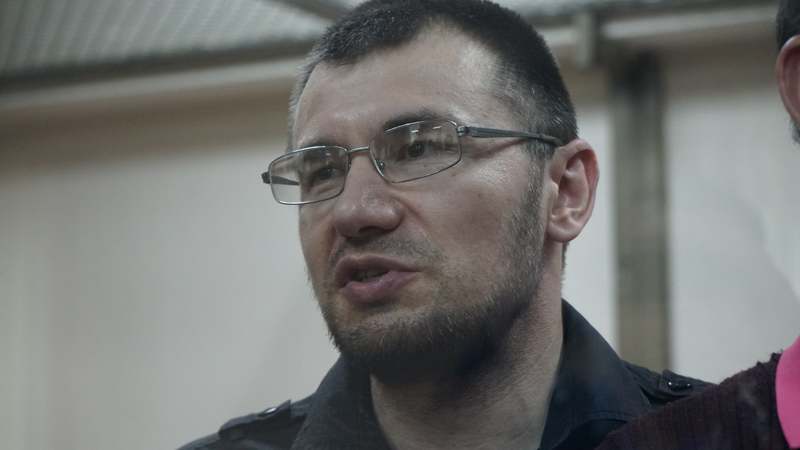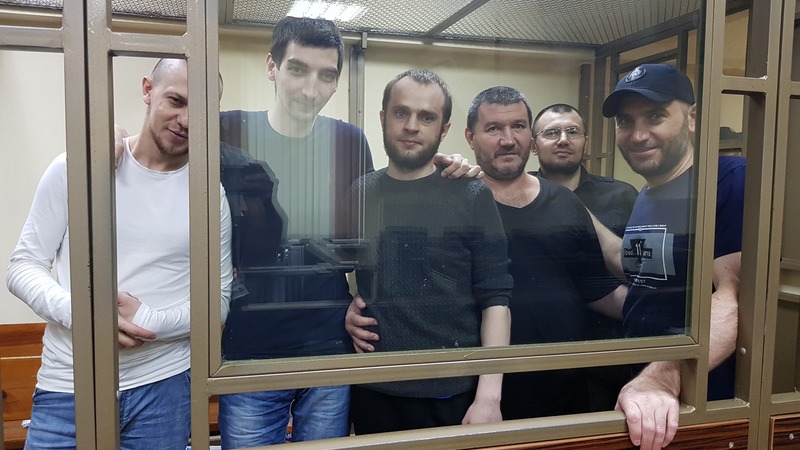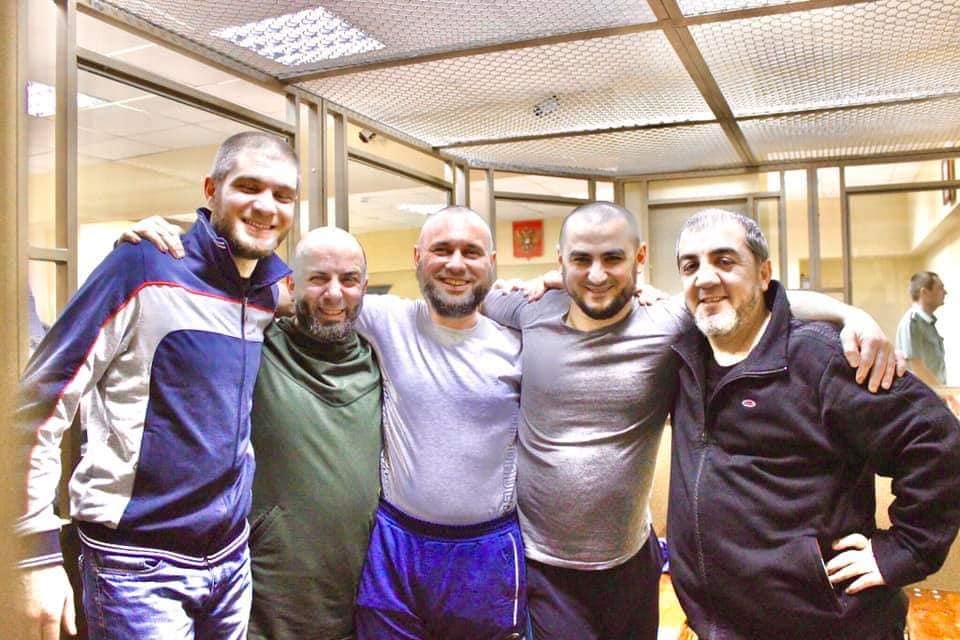Emir-Usein Kuku and other Crimean Tatar prisoners of conscience face new reprisals in Russian prison for refusal to collaborate

At least ten Crimean Tatar political prisoners, including human rights defender Emir-Usein Kuku, have been placed on so-called prophylactic registers, as inclined to ‘extremism’; to ‘attacks on prison staff’ and even to ‘escape attempts’. Although Kuku was told that the prison administration had no complaints about him personally, and was just obeying an order, such moves are very likely to be used as a pretext for imposing even more repressive measures against the political prisoners. The men’s lawyers believe that such registers are pressure on the Crimean Tatars who refuse to admit to the preposterous charges used against them and to collaborate with the prison administration.
On 15 September, Kuku’s wife received a call from her husband at Prison Colony No. 16 in Salavat (Bashkortostan). He told her that he had himself been stunned to learn that he had been laced on the register as supposedly ‘inclined to attack prison staff’ and had asked why. He was told that they had no complaints against him, that they were simply obeying instructions from the Federal Penal Service. The latter could find nothing better to do in reaction to a killing at another prison colony than to place literally all those sentenced under the notorious Article 205.5 of Russia’s criminal code on such a register. All of the Crimean Muslims imprisoned at No. 16 are now on at least one such register. This includes two men who were tried in the same ‘case’ as Kuku: Refat Alimov and Arsen Dzhepparov; as well as Emil Dzhemadenov; Uzeir Abdullayev and Enver Seitosmanov. Lawyer Emil Kurbedinov has said that they are aware of at least 10 men, and the list is likely to be longer.

Kuku; Alimov; Dzhepparov and the three other men on trial with them: Muslim Aliev; Inver Bekirov and Vadim Siruk have all been recognized by Amnesty International as prisoners of conscience. The renowned Memorial Human Rights Centre has declared them and the other Crimean Muslims imprisoned on identical charges political prisoners, and their release has been demanded by the UN General Assembly and other international and European bodies. Kuku had faced persecution and a likely attempted abduction from soon after Russia’s invasion of Crimea. When he refused to be silenced and cease his human rights work, they arrested him on supposed ‘terrorism’ charges. This has now become Russia’s standard tactic against Crimean Tatar civic journalists and activists, with this condemned by, among others, Human Rights Watch, who stated in March 2019 that “the sweeping arrests in Crimea aim to portray politically active Crimean Tatars as terrorists as a way to silence them”.
All of the men known to have been placed on such registers in Bashkortostan are serving sentences under Article 205.5 based solely on unproven claims of ‘involvement’ in the peaceful transnational Hizb ut-Tahrir party which is legal in Ukraine. The ruling in 2003 by Russia’s Supreme Court declaring Hizb ut-Tahrir ‘terrorist’ was kept secret until it could no longer be appealed. No explanation was provided for declaring an organization terrorist when it is not known to have committed acts of terrorism anywhere in the world. It is solely on the basis of this unwarranted ruling that Crimean Tatars and other Crimean Muslims have been sentenced to up to 19.5 years’ in the worst of Russia’s penal institutions. On the same formalistic grounds, Russia’s penal service is now placing the political prisoners on their so-called ‘prophylactic registers’ [профучет].

Dilyara Abdullayeva, whose two sons are both political prisoners, serving huge sentences, reported on 26 September that she had just spoken with her elder son Uzeir Abdullayev, who is at the same No. 16 prison colony. She reports that her son has been placed on three such registers: as ‘inclined to extremist activities’; as ‘inclined to attacks on prison staff’ and as ‘inclined to escape attempts’. There are no grounds at all, she stresses, for such a decision, and she is convinced that it has been taken to make the regime which is already extremely harsh even worse and to deny her son the chance of any easing of the conditions or of early release. She is also concerned that such ‘registers’ can be used as an excuse for placing the men in even worse conditions as ‘punishment’ [either punishment cells, or ‘СУС’ – harsh conditions]. Uzeir Abdullayev has diabetes and vascular problems making such conditions particularly dangerous. She writes that she earlier had a meeting with the head of the prison who spoke highly of her cultured and very erudite son. He had then said they had no complaints regarding Uzeir and that he would even support early release. Now she learns that he has been placed on three registers, each one of which “is a guarantee that a prisoner will stay till the end of their sentence” and means that they will be under particular control.
Lawyer Emil Kurbedinov says that he and colleagues are currently trying to ascertain the scale of these moves and is in no doubt that they are yet another form of pressure on political prisoners. They will also be demanding to see documents to justify claims that their clients are ‘inclined to attacks on prison staff’. If the accusation of an ‘inclination to extremism’ is a formalistic move, based solely on the article of the Russian criminal code wrongly used to imprison the men, you cannot simply claim that they are prone to ‘attacking prison staff’ without a shred of evidence.
See also:
Emir-Usein Kuku; Refat Alimov; Arsen Dzhepparov; Muslim Aliev; Inver Bekirov and Vadim Siruk
The ‘terrorist threat’ Russia brought to Crimea ; six victims receive huge sentences
Uzeir and Teymur Abdullayev; Emil Dzhemadenov; Rustem Ismailov and Aider Saledinov
“Mama, have they come to kill us?” Russia’s new-old terror and deportation of Crimean Tatars
Enver Seitosmanov
Crimean Tatar jailed for 17 years for “planning to overthrow Russia” by practising his faith





